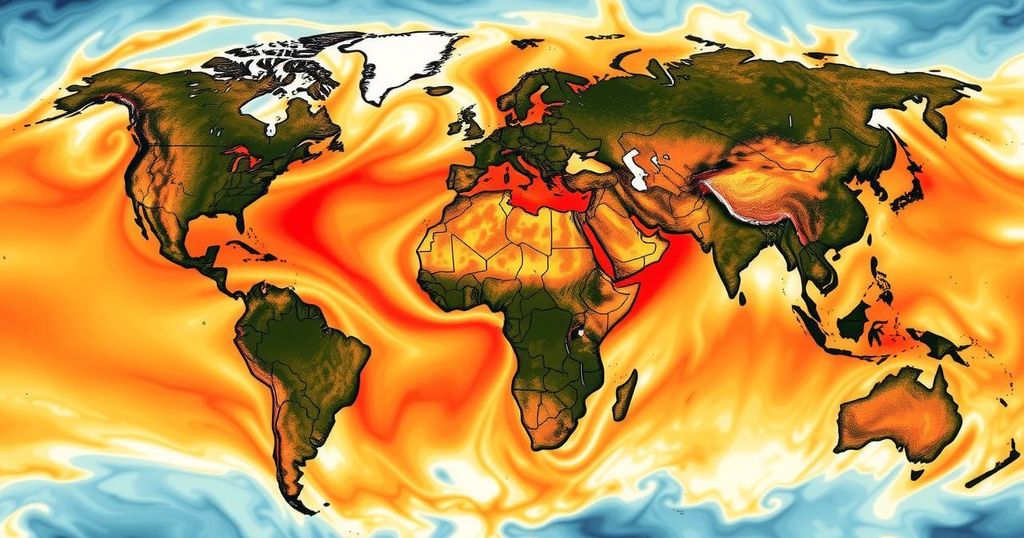2024: A Record-Breaking Year of Global Warming Exceeding 1.5°C

The year 2024 marked the first full year of global temperatures exceeding 1.5 degrees Celsius above pre-industrial levels, with an average of 1.6 degrees Celsius higher. Every month was among the warmest recorded, signaling alarming climate change trends and an urgent need for emission reductions to avert catastrophic impacts. Despite the clear evidence of climate change, political momentum for action is waning in some regions.
On January 10, 2024, scientists confirmed that the world has surpassed a significant climatic milestone, marking the first complete year in which global temperatures exceeded 1.5 degrees Celsius above pre-industrial levels. The European Union’s Copernicus Climate Change Service (C3S) reported that the average temperature in 2024 was approximately 1.6 degrees Celsius higher than the period 1850-1900, contributing to a worrying trend in climate change. Every month of the year was recorded as the warmest or among the warmest since records began, indicating an unprecedented shift in the planet’s climate.
The significance of crossing the 1.5-degree Celsius threshold is rooted in the 2015 Paris Agreement, where governments worldwide pledged to keep temperature increases to below this benchmark to mitigate severe climate impacts. The intrinsic link between human-induced emissions and rising global temperatures is evident from the consistent increase in carbon dioxide levels, which reached 422 parts per million in 2024. The growing incidence of extreme weather events globally—from wildfires in California to devastating floods in several countries—highlights the urgency of addressing climate change now.
In conclusion, the year 2024 stands as a stark representation of the challenges posed by climate change, with global temperatures surpassing the critical threshold of 1.5 degrees Celsius. As the scientific community continues to underscore the gravity of this situation, political action remains pivotal to curbing emissions and steering global temperatures to safer levels. The outcomes of this year serve as a clarion call for concerted efforts to prevent further climatic disasters.
Original Source: www.straitstimes.com






